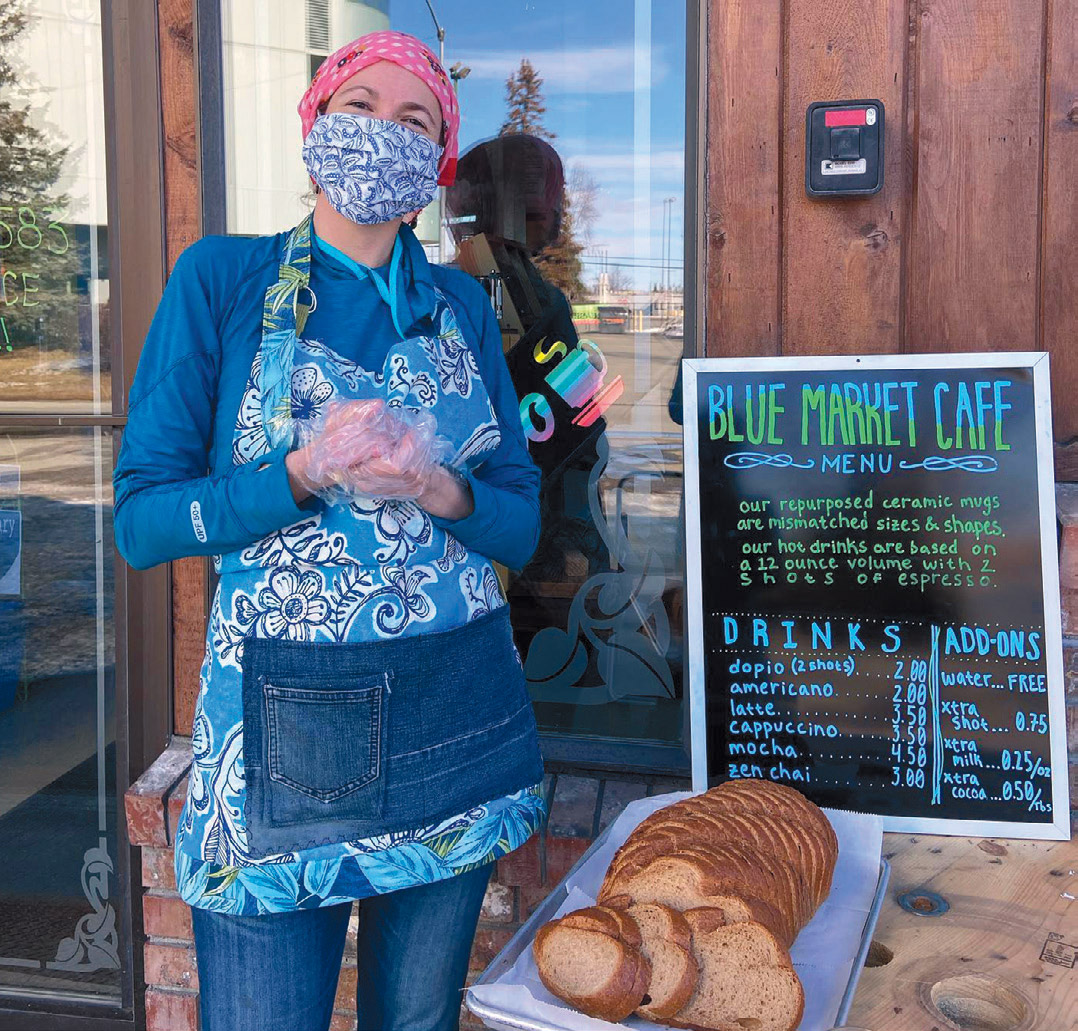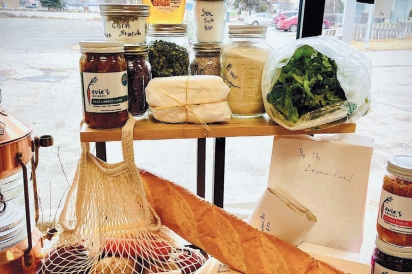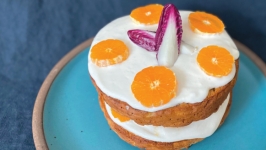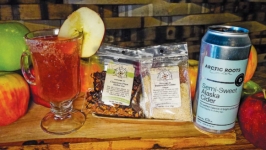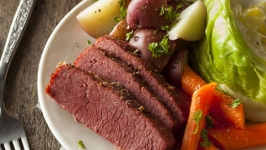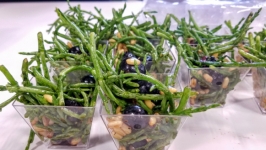A Pandemic without Waste?
Even a worldwide pandemic can’t defeat Alaskans’ hunger for a no-waste lifestyle.
Reducing waste is now a little easier thanks to Blue Market AK, an unpackaged refillery market—a mix between a European grocery store and a bygone general store—tucked in a corner of Anchorage’s famously quirky Spenard neighborhood. The market is filled with items that meet the sustainability criteria of owners Jennifer Gordon and Jessica Johnson. They emphasize local products, earth-conscious manufacturing, and reduced shipping and packaging while promoting humanitarian practices and creating community.
Blue Market encourages shoppers to bring their own containers, or to use containers from the store’s “lending library,” all of which have been cleaned and sanitized in their commercial kitchen.
When packaging does appear, it’s almost always compostable, recyclable, or reusable—and sometimes there’s none at all. For example, you may be used to seeing locally made Denali Dreams soap bars sold in pretty paper wrappers. But at Blue Market AK, the disc-shaped bars show up in their birthday suits.
Gordon and Johnson have been fine-tuning their retail approach since August 2019, when they originally launched the store as a “little blue market cart” at community farmers markets. Following a crowdfunding campaign, they held the soft opening of their Spenard storefront in November 2019. For a couple months, they offered a growing stock of non-perishable household goods, and at the end of the year they closed temporarily with plans to finish remodeling and stage a grand reopening in early 2020.
REOPENING THE DOORS
Then COVID-19 happened and, instead of throwing the doors open to the community as they’d hoped, Gordon and Johnson found themselves suddenly embracing online sales and no-contact curbside pickups— essentially setting up a brand new store and business model on the fly.
Even the most commonplace logistics of the business had to change. Need to touch electronics? Wash your hands before filling orders. New items just delivered? They have to sit for at least three days before being handled.
The scoops they use to measure out some items aren’t disposable, but they only get used once before going into the “dirty bin” to be sanitized for reuse. And instead of top-open bulk bins—which even in the “before times” were a weak point in many stores because they gave curious fingers and samplers full access to the food—are secure. Gordon and Johnson had already opted for gravity-fed bulk bins with downward-opening spouts so that the food stays sealed away, free from contamination.
“Things constantly change and evolve around here, even in the best of times, so we’re just trying to figure out what makes the most sense,” Johnson explains.
Starting in June, they finally got to welcome customers—just not quite as they’d originally intended. For the time being, at least, they plan to admit them a few at a time. As patrons walk the aisles, they make a list, and then Gordon and Johnson do the picking and packing. Think of it as online shopping in real life: maximum convenience and freedom of choice for you and maximum safety for everybody.
Customers are still welcome to bring and use their own containers— one of the key principles behind the store’s no-waste practices— but the owners do all the filling to minimize contact and contamination. Or, shoppers can purchase “grab-and-go” pre-filled containers of their favorite bulk items. And of course, Gordon and Johnson plan to continue offering online ordering and no-contact curbside deliveries for anyone who wants them.
Ultimately, the same flexibility of thinking that’s served the proprietors so well as they hunted for no-waste solutions in a state where it’s notoriously difficult to simply get things—much less get them in a sustainable way—has also served them well as they adapted to a pandemic level of difficulty in their final stage of opening.
READY TO FLOURISH
Although the market is fully decked out with food now—espresso, home-baked cookies and crackers, locally baked bread, and local produce in addition to grocery staples—it also offers food for thought, as Gordon and Johnson create a hub that’s filled with products and resources reflecting the wants and needs of the community around them.
The owners are serious about giving back to the community too, showcasing local makers in pop-up events, and donating one percent of their profits to a rotating selection of nonprofits. But perhaps the most important thing they’re serving up in the welcoming, cheerful space they’ve created is a level of hope that even amidst worldwide turmoil, we can still make positive choices for ourselves and the planet.
If you’re ready to up your no-waste game, it’s okay to start small.
“Choose one thing,” Johnson recommends. Trying to do it all at once can be overwhelming, but tackling one change at a time is doable— and you might just inspire others around you to start doing the same. For example, one of Gordon’s initial forays into the no-waste world was purchasing meat wrapped only in butcher paper—no plastic. Once she shared what she was doing, friends began following her lead.
Speaking of no plastic, one of the biggest surprises of the spring may have been that Anchorage’s plastic bag ban survived, despite the pandemic that has led some stores to request shoppers not bring in reusable bags. But Gordon and Johnson noted that some retailers are still fine with reusable bags as long as you do your own bagging. Imagine you’re on a trip to Europe, where self-bagging is the norm in many stores.
Other things you can do—big and small—include leaving items loose in the shopping cart and putting them in reusable bags at your car, or even toting your items home in cardboard boxes.
If you’re getting takeout, ditch the disposable utensils. You can buy reusable, portable utensil sets at the Blue Market AK, or just bring cutlery from home. Every piece of plastic going into the landfill—or the ocean—adds up.
Last but never least, remember to repurpose or reuse items whenever you can—practices that are especially important as we feel the pinch of reduced resources due to pandemic-related disruptions. And hey, if you have too many Mason jars or other clean, label-free glass jars with standard lids, Blue Market AK can put them to work.


